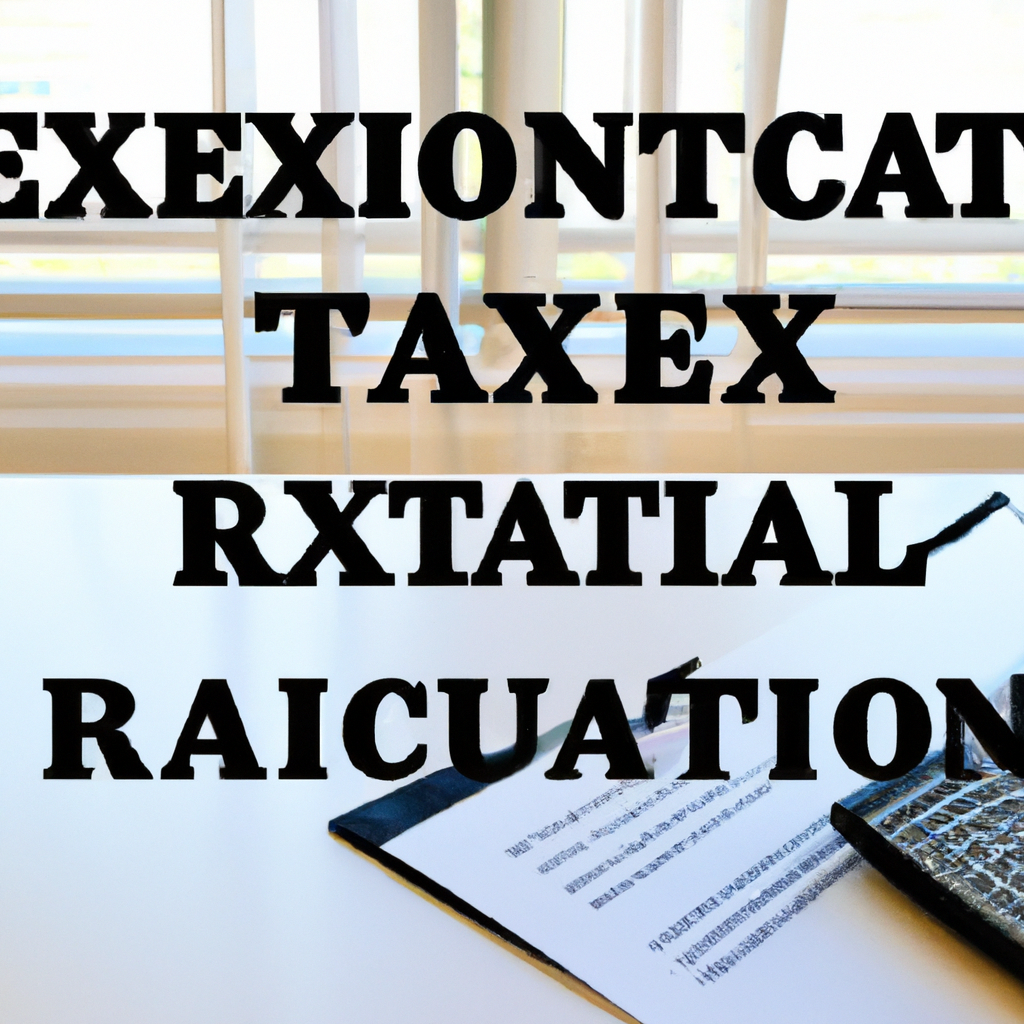Tax season is a stressful time for most of us, but it can be particularly tough for real estate investors. Keeping up with the latest news, deductions, and rules can feel overwhelming, especially when balancing it with other commitments. That’s why today, we are here to lay out some of the most effective real estate tax strategies, so that you can maximize deductions and make the process a little easier!
1. “Unlocking the Key to Saving Big: Real Estate Tax Strategies That Maximize Deductions”
Strategize to Cut Taxes
Saving on taxes is a key component in successful real estate investments, and understanding the tax benefits available can maximize your net profits. Here are some real estate tax strategies you can use to unlock the key to saving big.
Check Your Local Area
It’s important to be aware of the real estate tax laws in your particular jurisdiction, as they will play a major role in how you should proceed. Make sure you understand the regulations so you can think ahead and use them to your advantage.
Be Aware of Rental Tax Deductions
If you’re renting out property, there’s a few things you should know. Look into deductions such as:
- Advertising expenses
- Insurance premiums
- Management expenses
- Mortgage interest
- Property expenses
- Repair and maintenance
- Travel expenses
Don’t Forget Tax Credits
In addition to deductions, there are often tax credits available that you can qualify for as well. Check in with your tax advisor to find out if any of the credits apply to you. A few examples include:
- Solar power credits
- Historic rehabilitation credits
- Affordable housing credit
- Low-income housing credit
- Green energy credits or deductions
Think Before You Buy
When you’re considering a particular piece of property, it’s important to factor in the potential tax liabilities that come with it. Consider whether the property can be depreciated over time, and how you can use the depreciation to reduce your tax burden.
Get Professional Advice
Navigating the complex world of real estate taxes can be overwhelming. It’s always a good idea to consult with a qualified professional for personalized advice. Such advisors can go into more detail and point out tax advantages you might be missing.
2. “Mastering the Art of Tax Efficiency: Unveiling Real Estate’s Hidden Deductible Gem”
When investing in real estate, understanding the nature of taxes can provide significant advantages for investors. Tax strategies help to reduce an investor’s income tax liabilities and, as a result, maximize the investor’s yield. So, what are the hidden deductible gems of real estate?
Property Taxes
- Property taxes are deductible as part of an owner’s Schedule A tax deductions. As a result, real estate investors may deduct these taxes as itemized deductions.
- These deductions can go a long way in reducing an investor’s overall tax burden.
Mortgage Interest
- Mortgage interest is another tax-deductible expense associated with owning real estate.
- This can also be deducted from the owner’s Schedule A deductions, nearly offsetting the income earned from their real estate investments.
Maintenance and Repairs
- The cost of maintenance and repairs are also deductible, as long as the investor spends money to maintain the property’s structural integrity for the primary purpose of leasing it.
- The cost of repairs necessary to maintain the property should be done in order to take advantage of the tax deduction.
Management Fees
- Fees paid for the management of a real estate investment are also deductible. These fees may include property management fees, legal fees, accounting fees, and other expenses associated with the management of the property.
- All of these expenses can be deducted as part of the Schedule A tax deduction.
By taking advantage of the hidden deductible gems of real estate, investors can optimize their return on investment and lessen their tax burden. Mastering the art of tax efficiency and understanding the types of deductions available to real estate investors can be very beneficial.
3. “From Potential Pitfall to Tax Advantage: Discovering the Savvy Strategies of Real Estate Taxes”
Finding the Right Tax Professional
Real estate taxes can be a complicated subject, and it pays to have a professional advisor on your team. Experienced professionals, such as a CPA or an attorney, can provide valuable insight into the regulations, tax laws, and deductions that are available to real estate investors. They can help you understand how to maximize your tax savings by taking advantage of available deductions and credits. When selecting a professional, be sure to look for someone with experience in real estate taxation; they should be able to help you navigate the changes in the tax codes and provide advice on how to best structure your investments to receive beneficial tax treatments.
Maximizing Expenses with Deferred Depreciation Strategies
One way that real estate investors can take advantage of taxes is by deferring their depreciation deductions. By utilizing a Cost Recovery System over a straight line method, investors may use their deferral of depreciation deductions to their advantage. Cost recovery systems may allow for more deductions in the near future and can be effective in offsetting net income to reduce a taxable liabilities.
Know Your Entity and Tax Benefits
Another way to maximize your tax savings is to consider which entity is best suited for your real estate investments. Each entity type has its own set of tax benefits and restrictions and choosing wisely can make all the difference in terms of your taxes. LLCs, Limited Partnerships, and Corporations all offer distinct tax advantages, such as liability protection, the ability to reduce self-employment taxes, and the ability to share profits without the additional tax burden.
Taking Advantage of Credits
Real estate investors can take advantage of several tax credits by making certain improvements to their property. Things such as energy efficient HVAC systems, new roofing or siding, and other capital improvements can result in credits for the owner. Be sure to keep track of all your financial information in order to receive the maximum tax benefit from these credits.
Keeping Tabs on New Updates
Tax laws, regulations, and deductions are always in flux, which is why it is important to stay up to date on the latest changes. Real estate investors should be sure to regularly review the updates to tax law to ensure they are taking advantage of all available deductions, credits, and deferral strategies. Being aware of the ever-changing landscape of taxation will provide you with the knowledge needed to minimize your tax liability and maximize your savings.
4. “Navigating the Tax Labyrinth: Unlocking Deductions in the Real Estate world
The real estate world is never predictable, and taxes are an important yet complex part of it. Navigating through the myriad of deductions is essential for landlords and business owners so they can get the most out of their investment.
Here’s a quick guide to real estate tax deductions that can help unlock hidden savings:
- Home office deduction: The home office deduction allows you to deduct expenses related to using a portion of your house exclusively for running a business. This includes things like office furniture, equipment, and supplies.
- Mortgage interest deduction: This one’s a no-brainer. As long as you’re paying on your mortgage, you’re entitled to deduct interest payments from your taxes. This applies to loan amounts up to $750,000.
- Property taxes deduction: Property taxes are a big portion of a homeowner’s expenses. Fortunately, you can deduct up to $10,000 annually from your taxes for paying them.
If you own rental properties, you can take advantage of some additional deductions as well. You can deduct the cost of repairs, maintenance, insurance premiums, and other necessary expenses related to the upkeep of your rental property. This applies to both short-term and long-term rentals.
If you’re the kind of real estate investor who does a lot of traveling, you can also deduct a portion of the costs associated with that. Airfare, hotel costs, meals, and transportation expenses can all be written off as long as they were incurred during business trips.
Real estate taxes require diligent preparation and strategizing for maximum savings. This means understanding the tax deductions that apply to you and taking the time to properly document your expenses. Doing this can save you a lot of money in the long run.
From navigating the complexities of the tax code to reaping the ultimate reward of reducing your tax bill as a homeowner, the task of understanding real estate tax strategies can seem daunting. But with the right information, knowledge, and preparation, you can easily maximize your deductions and enjoy the financial benefits of home ownership.


